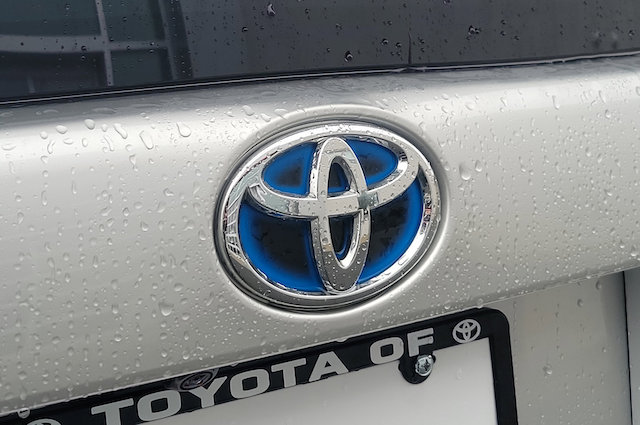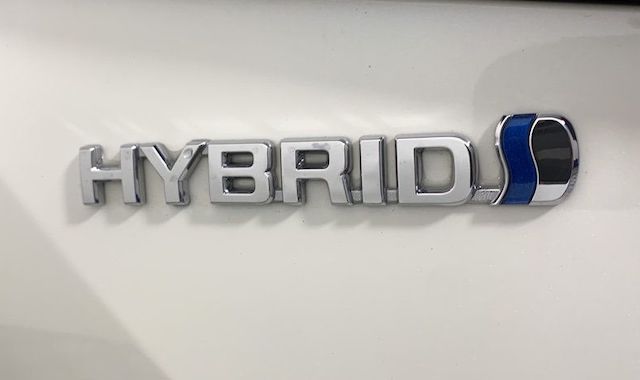Important Hybrid Car Buying Tips
 Hybrid cars and SUVs can deliver great fuel economy without compromising on performance. That’s why many motorists consider a hybrid vehicle as their next car. But with so many different hybrids on the market, knowing which one to choose can be a bit daunting.
Hybrid cars and SUVs can deliver great fuel economy without compromising on performance. That’s why many motorists consider a hybrid vehicle as their next car. But with so many different hybrids on the market, knowing which one to choose can be a bit daunting.
To help you make the right choice, we break down the differences between hybrid technologies. And when going hybrid is the right choice.
What Types Of Hybrid Vehicles Can You Get?
There are several types of hybrids on the market today. If you're not sure about what kind of hybrid you have, you can consult your owners manual. (Download your free Toyota owner's manual here.) The three most common types are:
- Mild Hybrids (MHEV)
- Self-Charging Hybrids (Full hybrids) (FHV)
- Plug-in Hybrids (PHEV)
Mild Hybrids use a small electric motor and battery. This assists the internal combustion engine (ICE) for short periods. They power the auxiliary systems (power steering, air conditioning), and give a small power boost to the engine as you pull away from a complete stop. The battery is charged through regenerative braking or via the alternator
This type of hybrid offers the least electrical assistance. But it’s the most cost-effective to buy.
Self-Charging or full hybrids have a bigger battery pack and electric motor. Some can power the car on battery power alone for a few miles. They also recharge through regenerative braking and can help power auxiliary systems.
This type of hybrid offers the best balance between cost and performance. Most of Toyota’s hybrid range are self-charging hybrids.
Plug-In Hybrids have the biggest battery packs and electric motors. Some offer electric-only driving ranges up to 80 miles or more. They require plugging into an external power source to charge the battery. Some PHEVs use both the gas and electric motor when driving for extra performance.
This type of hybrid costs the most but can deliver the best economy on frequent short trips. Especially when using electric power alone. You will need access to a charger at your home or work, because not charging the battery will greatly reduce your vehicle’s efficiency.
Which Hybrid Vehicle Is Right For You?

Picking the right hybrid vehicle is important. Toyota has been building hybrids since 1997. That’s longer than any other major auto manufacturer. And the current Toyota range offers 14 electrified models on offer.
Pick the vehicle size and class that best suits your needs
Need something for a family? The Toyota RAV4 is a spacious SUV that will comfortably seat five adults. It can be had in both PHEV and Self-Charging variants. The Toyota Sienna MPV will seat eight people if you need even more space.
The Toyota Prius and Corolla are great options if you prefer something a bit sportier and don’t need the extra space. Other hybrid Toyotas include the Camry, Crown, and Highlander.
Compare fuel economy figures between models
Hybrids can sometimes cost a bit more than their gasoline-only counterparts. Although, the gap in pricing between a standard Corolla and the hybrid model is just $1,250.
And the hybrid model can deliver up to 50mpg in mixed driving. The regular Corolla will only do 35mpg. That means fuel costs will be much lower for the hybrid, saving you money in the long run.
If you spend most of your time around town, the gap is even bigger. The hybrid will do 53mpg, much better than the regular car’s 32mpg.
Plug-in hybrids will cost more but deliver the best fuel economy. Self-charging (full) hybrids are slightly cheaper. But have a shorter all-electric range. And remember, hybrids are at their least efficient on long highway journeys.
Don’t forget about warranties and servicing costs
Every Toyota hybrid since the 2020 model year has a 10-year/150,000-mile hybrid battery warranty. Older models still have an impressive 8-year/100,000-mile battery warranty.
Hybrid Toyotas have proven to be as reliable as their gas-only counterparts. However, some models may have higher servicing costs than others, so do your research before buying. Certified used Toyotas all come with warranties. And many can be had with maintenance plans, too.
And, if you ever need an OEM part, Olathe Toyota Parts Center is here to help. All our OEM parts are backed by the standard Toyota 12-month, unlimited miles warranty.
When Is A Hybrid Vehicle A Good Idea?

- If you make frequent short trips
- To lower running costs
- When you want the best mix of performance and economy
- If you need the flexibility of both a gas and electric drivetrain
There are many reasons to make your next vehicle a hybrid. In most daily-driving situations, they make more sense than a gas-only vehicle. Toyota hybrids are smooth, quick, and efficient. Even older models deliver impressive fuel economy.
And when you need a hybrid part for your vehicle, Olathe Toyota is just a phone call away. With over 15 years of online sales experience and a huge range of OEM Toyota parts, we can help keep your hybrid Toyota on the road for years to come.







